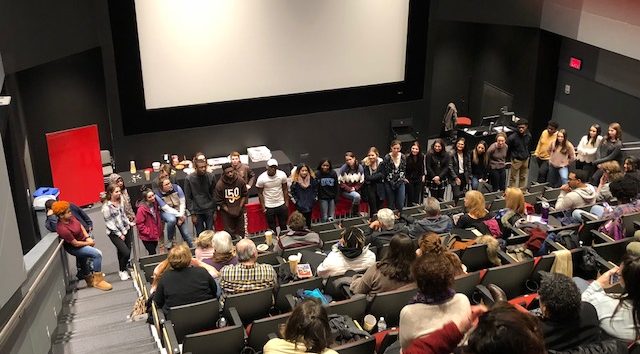The first thing that stood out to me when I started watching Cameraperson was the power of the natural sounds in the documentary. The birds chirping, the sounds of Kirsten navigating the camera, her pacing breath, her footsteps, and just how the audience can tell that there is a person behind the camera is so important. During Kirsten’s talk, she confided that she didn’t have a good ear at the beginning of her career. Sounds would just run past her ears. But as she started gaining more experience, she realized the essence of sound and how it adds life to the hundreds of images that are being displayed onscreen. I also respected how we could hear her comments and reactions to certain stories during Cameraperson. The shot I recall clearly is when the boy from Kabul, Pakistan talks about how he lost his brother and Kirsten’s voice after saying that she couldn’t hold her tears. We can tell how compassionate and affected she is through the breaking of her voice in this part.Sounds do tell a story of its own. Similar to Sergio Leone’s Once Upon A Time In The West, we hear the intensity of the drops of water falling from the broken ceiling and the irritating fly. The sounds in Leone’s film are extremely important for the film as a whole. This also reminded me of Nolan’s powerful sound effects in Dunkirk. The loud sounds of war carry the entire film, leaving scarring vibrations in your head after you leave the cinema. The essence of sound is how realistic it makes a video. As a documentarian and a film scholar, I’m trying to work on being more observant towards sound. Kirsten did also mention that she doesn’t take charge of recording the sound but she advocates the sound recording role to another professional. She believes that there are specialized people for every part in the film industry.
